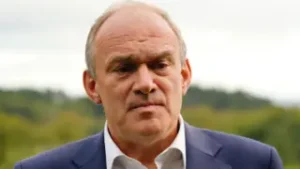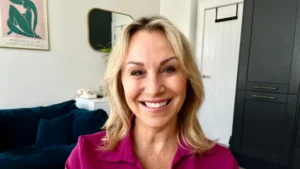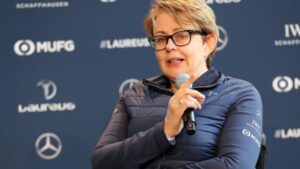Cleavage-sparing op numbers ‘inflated’ – Paterson
Rogue surgeon Ian Paterson gives evidence into the death of a patient, one of 62 inquests being held.
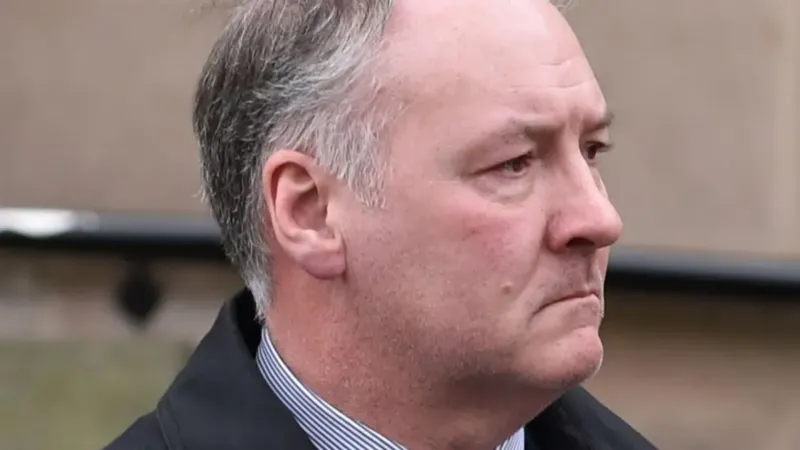
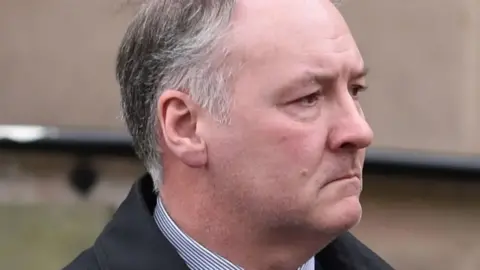 PA Media
PA MediaA disgraced former breast surgeon has told an inquest into the death of one of his patients that the number of “cleavage-sparing mastectomies” he had reportedly carried out had been “inflated”.
Ian Paterson was jailed for 20 years in 2017 for wounding 10 patients by carrying out the unauthorised procedure which left behind tissue.
New inquests are investigating the deaths of 62 patients including 63-year-old Elaine Turbill in 2017, 12 years after Paterson performed a mastectomy operation on her.
Giving evidence remotely from prison, he said it would be “crazy” to leave breast tissue behind during such surgery.
He also denied that it was a new operation he performed but rather an “adaptation” and denied coining the term “cleavage-sparing mastectomy”.
Paterson’s trial seven years ago heard the technique involved leaving some breast tissue behind, preserving patients’ cleavages.
However the inquest has heard it also increased the risk of cancer returning – a point the surgeon denied on Thursday.
He told the coroner he stopped performing his version of a mastectomy as soon as he was informed by hospital chiefs in 2007 that more research was needed.
Speaking in general terms, he said breast surgeons aimed to remove all breast tissue when carrying out mastectomies, but in practice this was never 100% successful.
In evidence, he drew a distinction between glandular breast tissue – which produces milk – and the subcutaneous fatty tissue, some of which he would retain.
The inquest previously heard that when examined in 2010, Elaine Turbill had 20% of her breast tissue left behind by Paterson.
But he said it was “not an objective measure” and told the inquest when carrying out operations of this type he was “as near as possible certain that I wasn’t leaving behind glandular breast tissue”.
He asked why the residual tissue in Mrs Turbill had not been noticed before that point and suggested it may have been fat which had grown since the operation in 2005.
‘Better cosmetic result’
He told the inquest he had discussed the possibility of a cosmetic reconstructive surgery with her, but she had rejected it.
Paterson went on to say that it was not normally his practice to discuss the specifics of operations in great detail with his patients, because he believed it scared them.
Instead, he said he left those conversations to nurses.
Asked by counsel to the inquest Jonathan Jones KC whether patients needed to be informed that he was not performing a standard mastectomy, Paterson replied: “You’re making it sound flippant, but this is a lady losing her breast.
“The lady is entitled to know her cancer will be gone and the person operating will do everything they can to remove the cancer safely in its entirety.
“It was possible to give them a better cosmetic result. You haven’t spoken to the women who go home and won’t let their husbands near them, or the women who take down all the mirrors in the house because they can’t stand to look at themselves.
“If you had seen that, you would want to do your level-best to make them feel better.”
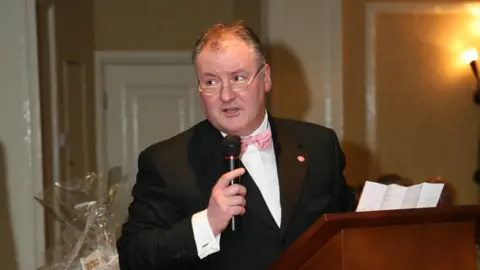
Paterson, who practised as a consultant surgeon from 1998 until 2011, treated patients at Solihull Hospital, then part of Heart of England Foundation NHS Trust.
He also practised privately at Parkway hospitals in Solihull and Little Aston in Sutton Coldfield, both run by Bupa until 2007 and afterwards by Spire.
The surgeon said there had been a high workload at the Heart of England trust and that had caused tensions.
The inquest heard another surgeon, Andrew Stockdale, had raised concerns about the amount of residual tissue left behind in mastectomy operations carried out at the trust, where both worked.
Paterson said he was aware his colleague had been collecting evidence of this, but that the matter had not been raised within multi-disciplinary team meetings, which brought together NHS colleagues to discuss a patient’s treatment.
One of his colleagues, radiologist Dr Chris Fletcher, told the inquest on Wednesday that the breast surgeon was a “nightmare” to work with and that multi-disciplinary meetings were “always difficult” because Paterson “always tried to run the show”.
The inquest continues.


